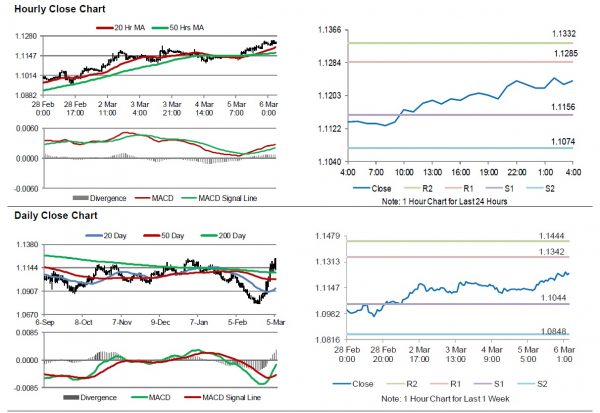For the 24 hours to 23:00 GMT, the EUR rose 0.86% against the USD and closed at 1.1231.
In the US, seasonally adjusted initial jobless claims dropped to a level of 216.0K on a weekly basis in the week ended 28 February 2020, less than market expectations and compared to a level of 219.0K in the previous week. Additionally, factory orders declined 0.5% on a monthly basis in January, more than market forecast for a drop of 0.1% and compared to a revised rise of 1.9% in the previous month. Moreover, final durable goods orders fell 0.2% on a monthly basis in January, compared to a revised rise of 2.9% in the previous month. The preliminary figures had also indicated a fall of 0.2%.
In the Asian session, at GMT0400, the pair is trading at 1.1239, with the EUR trading 0.07% higher against the USD from yesterday’s close.
The pair is expected to find support at 1.1156, and a fall through could take it to the next support level of 1.1074. The pair is expected to find its first resistance at 1.1285, and a rise through could take it to the next resistance level of 1.1332.
Looking ahead, traders would keep a close watch on Germany’s factory orders for January, slated to release in a few hours. Later in the day, traders would focus on the US non-farm payrolls, average hourly earnings and the unemployment rate, all for February. Moreover, the release of US trade balance and consumer credit, both for January, will keep investors on their toes.
The currency pair is trading above its 20 Hr and 50 Hr moving averages.

